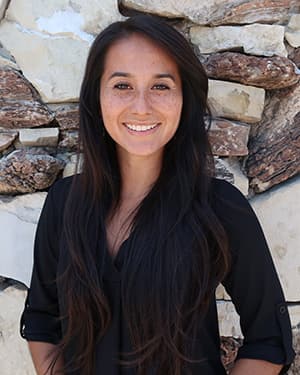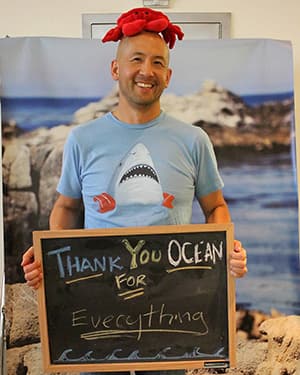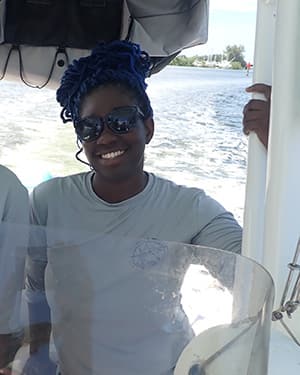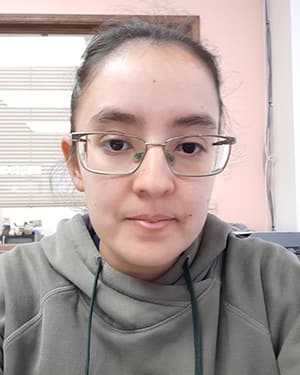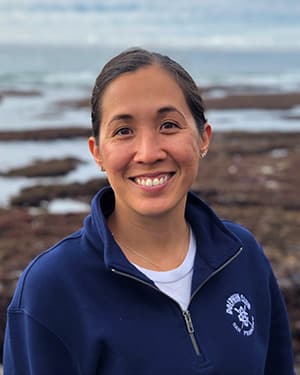Teacher Resources
Blue Carbon Resource Collection
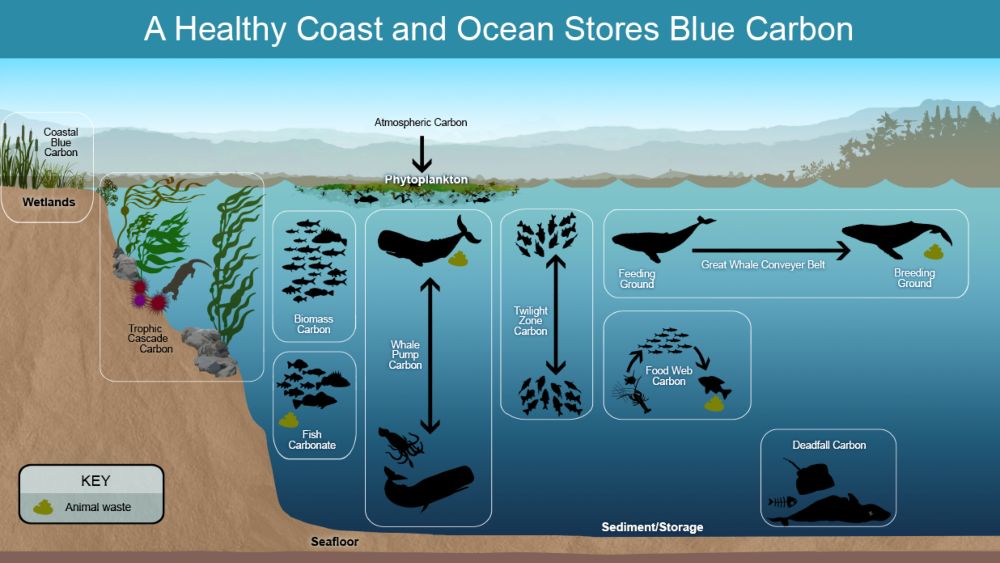
Blue carbon is the carbon captured and stored in coastal and marine ecosystems, such as tidal salt marshes, mangroves, and the deep ocean floor. Blue carbon ecosystems can help address climate change resulting from the global emission of carbon dioxide into the atmosphere by removing and storing some of that atmospheric carbon dioxide for long timescales in sediments and deep water. Greater Farallones National Marine Sanctuary contains blue carbon ecosystems; by protecting and restoring these ecosystems they preserve and grow an important nature-based climate solution.
This resource collection includes webinars, videos, fact sheets and infographics and a lesson plan to help educate others about the value of protecting blue carbon processes and habitats to help address climate change. Free to download from the National Marine Sanctuaries Education web page.
Ocean Career Video Series for students 'Sea Your Future'
These five minute videos highlight black, Indigenous, and people of color in career pathways in marine research and ocean conservation. The main goal of the series is to represent marine scientists of color as role models for students to inspire a world of possibilities for their future careers. The videos tell the story of how these individuals got involved in the field, what they do, what barriers they encountered, and what they enjoy most about their work.
Active Listening Questions for Students:
Suggest giving pairs of students the following active listening questions while viewing the videos
- What is the name and title of the person in the video?
- How does their work or research help protect the ocean?
- What was one of their biggest challenges they faced in pursuing their career?
- Did they share a cool or crazy story about their job? If so, what was it?
- Did they provide any advice on how to pursue a marine research or conservation career? If so, what was it?
- Did you learn anything new that got you excited about pursuing a career in ocean science or conservation?
Deep Coral Communities Sentinels of a Changing Ocean Curriculum

Take your students on an incredible journey hundreds of feet beneath the surface of the ocean without ever leaving the classroom! Using research footage from remotely operated vehicles, your students will be able to utilize real scientific methods to explore the unique deep-sea coral communities found in our West Coast national marine sanctuaries (including Greater Farallones National Marine Sanctuary). These materials are aligned with the Next Generation Science Standards, Common Core Education Standards and Ocean and Climate Literacy standards. Materials include: lesson plan, video, powerpoint slideshow and script, supporting materials to go with lesson plan, and an interactive poster. Free to download from the National Marine Sanctuaries Education web page.
Dungeness Crab Case Study: Communication Toolkit

The Dungeness Crab Tool Kit provides various outreach and education tools to teach about how ocean acidification could negatively impact dungeness crab. Dungeness crab is a valuable species throughout the national marine sanctuaries of the West Coast from Washington state to throughout California. This communication toolkit is designed for educators and communicators to use to teach others about the impact of ocean acidification on Dungeness crab.
The toolkit includes: fact sheet; infographic; PowerPoint slideshow with script; reference list; resource list; public domain video B-roll; and public domain images.
Posters
Greater Farallones National Marine Sanctuary 50th Anniversary Poster

Harvestable Bounty of the Sea Poster
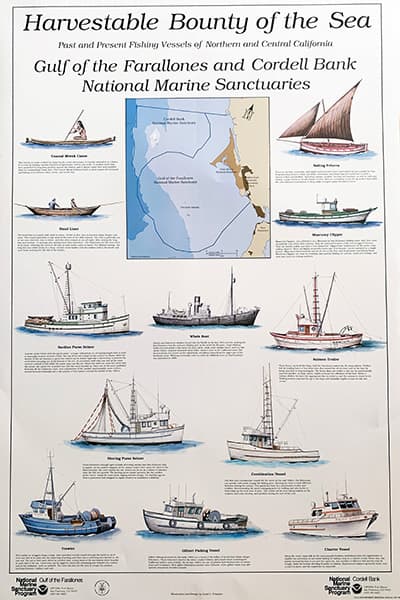
Los Pajaros de los Esteros (Birds of the Esteros) Poster
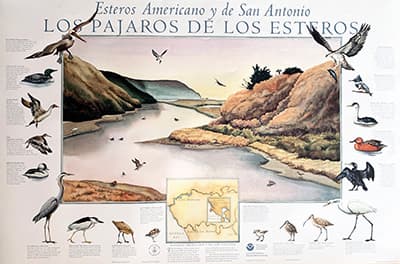
To learn more, contact Justin Holl at (415) 530-5351 or justin.holl@noaa.gov.
Teacher Development Workshops
Teacher At Sea
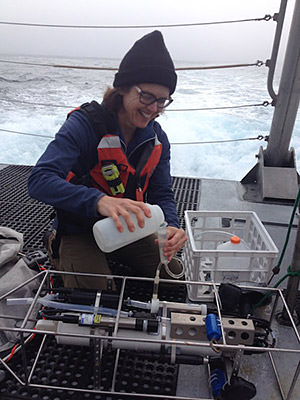
Are you interested in being a Teacher at Sea?
The mission of the National Oceanic and Atmospheric Administration’s (NOAA) Teacher at Sea Program is to provide teachers hands-on, real-world research experience working at sea with world-renowned NOAA scientists, thereby giving them unique insight into oceanic and atmospheric research crucial to the nation. The program provides a unique opportunity for kindergarten through college-level teachers to sail aboard NOAA research ships to work under the tutelage of scientists. To learn more about this program: https://teacheratsea.noaa.gov.
For more information and application materials visit: cordellbank.noaa.gov/education/wrkshpsprgrms.html


